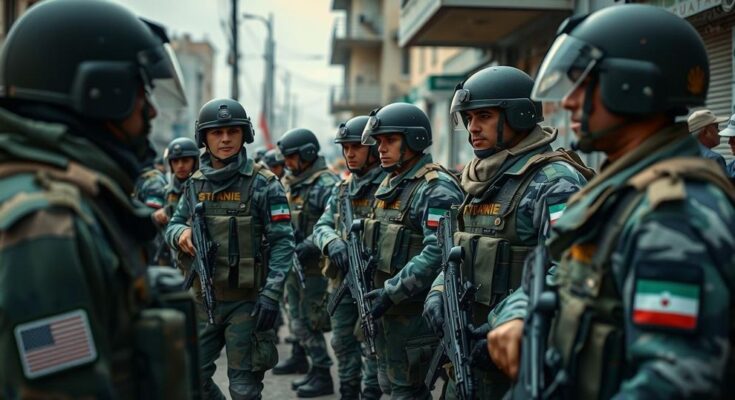On Friday, Israeli airstrikes in Lebanon resulted in the deaths of medical workers and injuries to Italian UN peacekeepers. Hezbollah’s response included targeting Israeli troops, continuing the long-standing conflict. The situation escalates with increased Israeli military actions and humanitarian concerns, amidst Lebanon’s national independence celebrations, reflecting the nation’s challenges.
On Friday, at least five medical workers were confirmed dead due to continued airstrikes by Israeli forces in southern Lebanon and the Beirut outskirts. This escalation followed US envoy Amos Hochstein’s departure from Tel Aviv after diplomacy efforts with Israeli and Lebanese officials. Concurrently, Italian Italian peacekeepers of the UN Interim Force in Lebanon reported that four members were injured from two rockets that hit their headquarters in Shamaa. Prime Minister Giorgia Meloni condemned the attacks, calling them “unacceptable” and emphasized the need for protecting UN peacekeepers. Meanwhile, Hezbollah targeted Israeli troops in the area, resulting in further conflict. Amidst these tensions, Israel escalated its air campaign against various Lebanese regions, leading to significant destruction, civilian panic, and casualties. Reports highlight continuous attacks on medical facilities, and a notable increase in violence led to significant casualties and refugee movements throughout Lebanon. Amidst these alarming developments, the country also marked its independence anniversary, reflecting resilience throughout the ongoing crisis.
The conflict in Lebanon, particularly between Israel and Hezbollah, has been intensifying for over 50 days. The involvement of external diplomats, such as the US envoy, signals ongoing attempts at diplomatic resolution amid relentless military actions. The UN Interim Force in Lebanon, tasked with peacekeeping responsibilities, has faced direct assaults, raising questions about the safety and security of international peacekeepers in volatile regions. The humanitarian situation is exacerbated by repeated targeting of medical workers and facilities in compliance with international humanitarian law, which poses significant challenges to the provision of care amid the ongoing conflict.
The current situation in Lebanon is marked by tragedy, with casualties among medical personnel and peacekeepers amid ongoing armed conflicts. Recent events underscore the urgent need for a resolution to the crisis that does not sacrifice the safety of civilians and humanitarian workers. Diplomatic efforts are crucial in restoring stability while addressing the humanitarian needs of those impacted by the violence. Continuous military actions and retaliations further complicate any progress towards peace, emphasizing the fragility of the situation. The resilience of Lebanese citizens during national celebrations amid such adversity highlights the longstanding challenges facing the nation.
Original Source: www.arabnews.com




